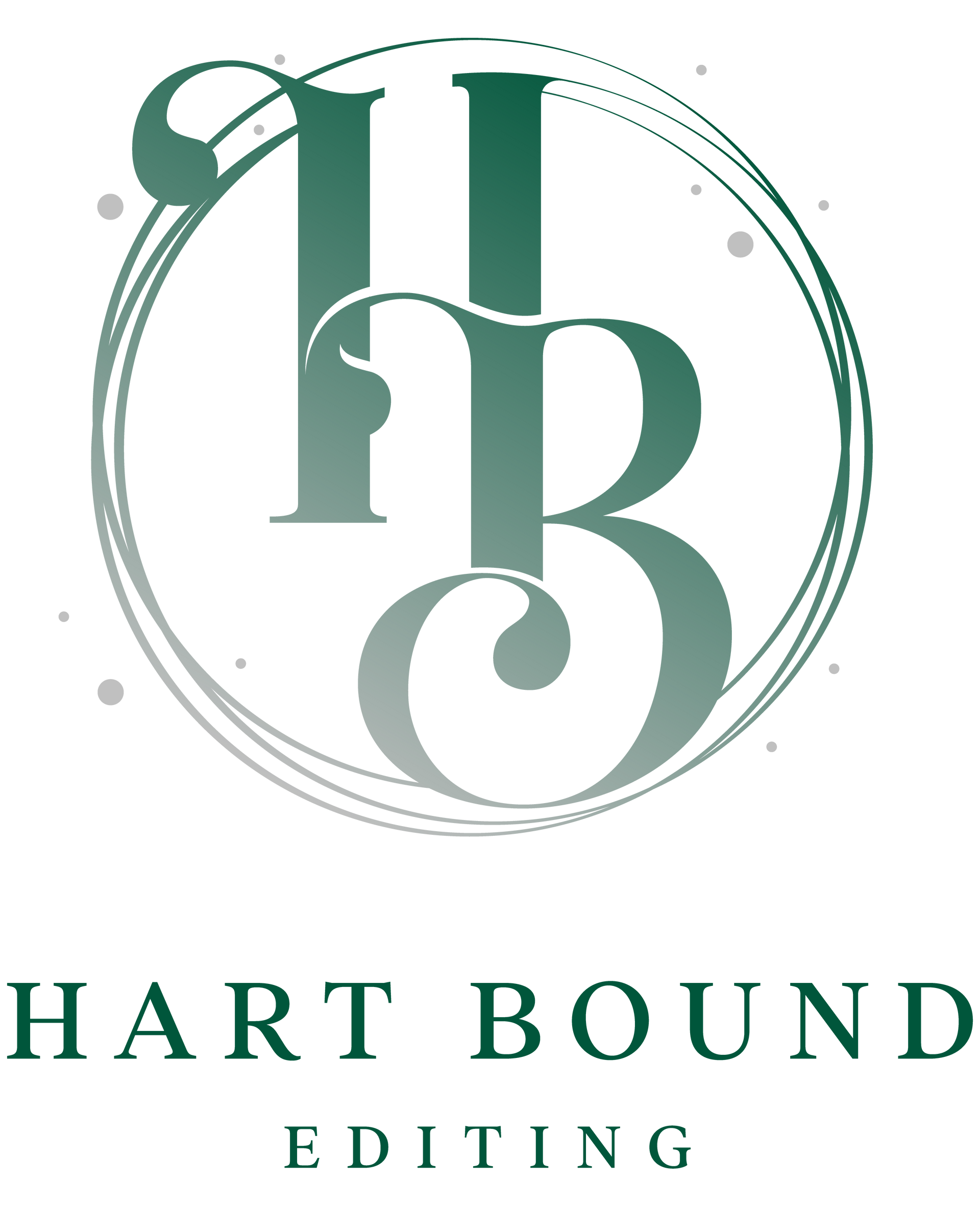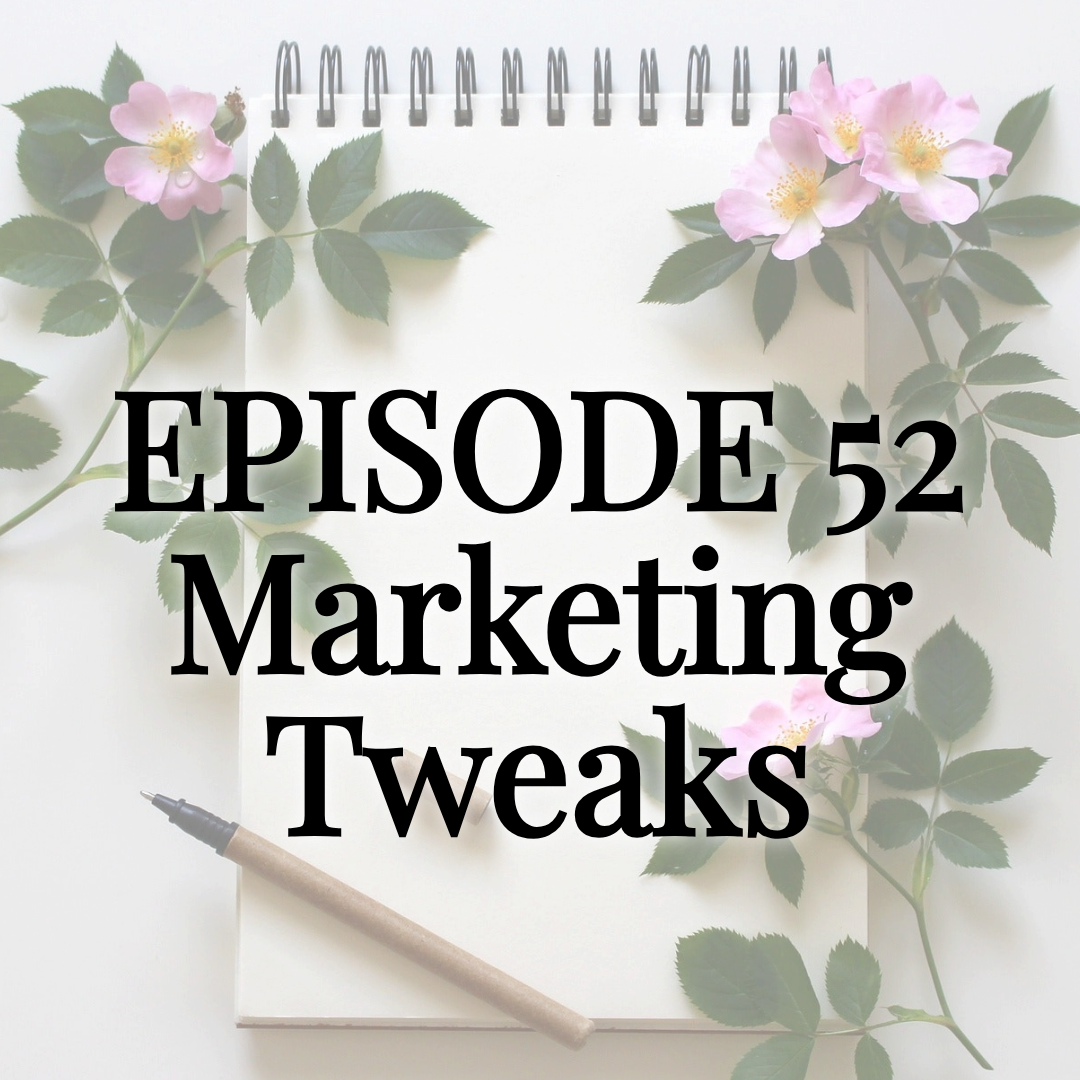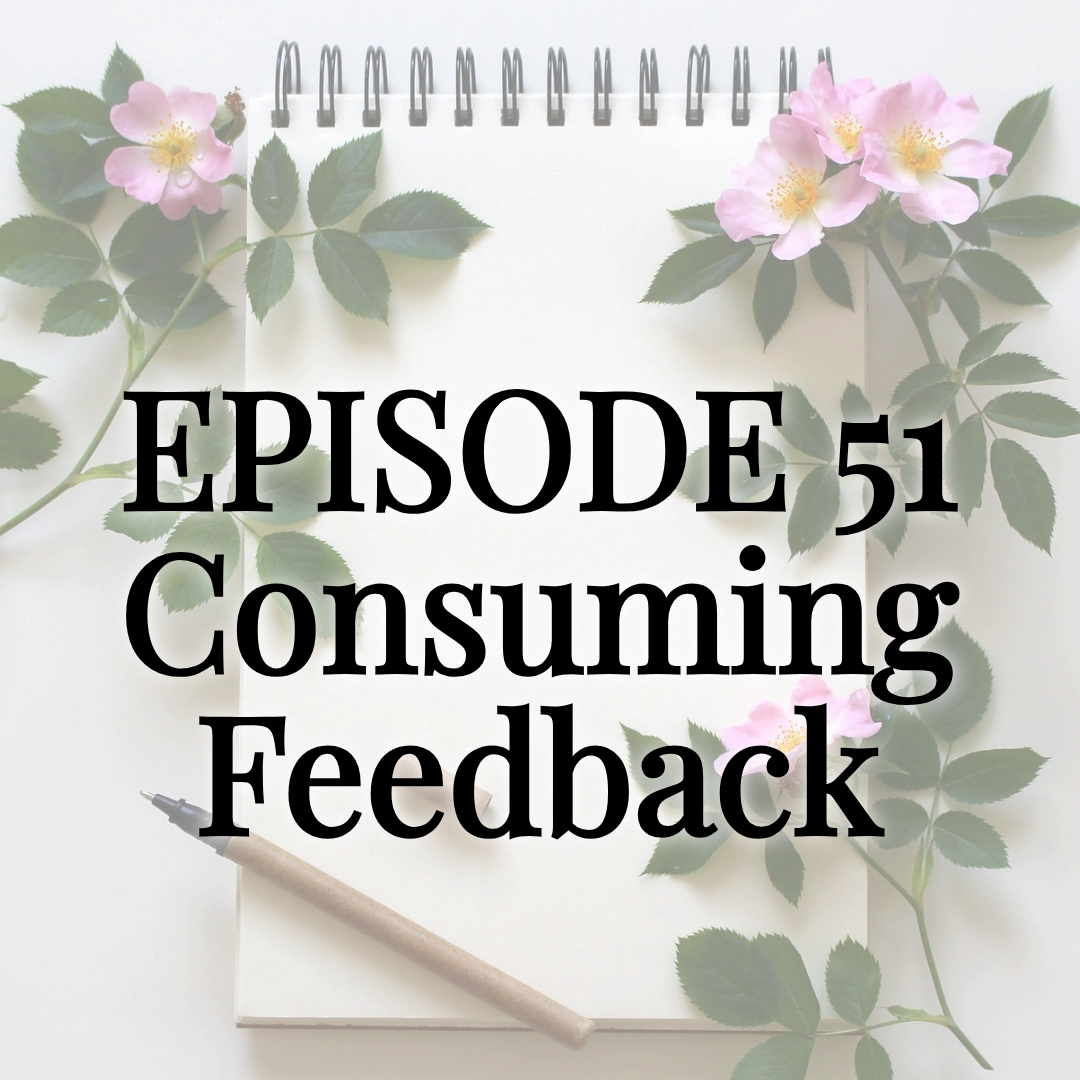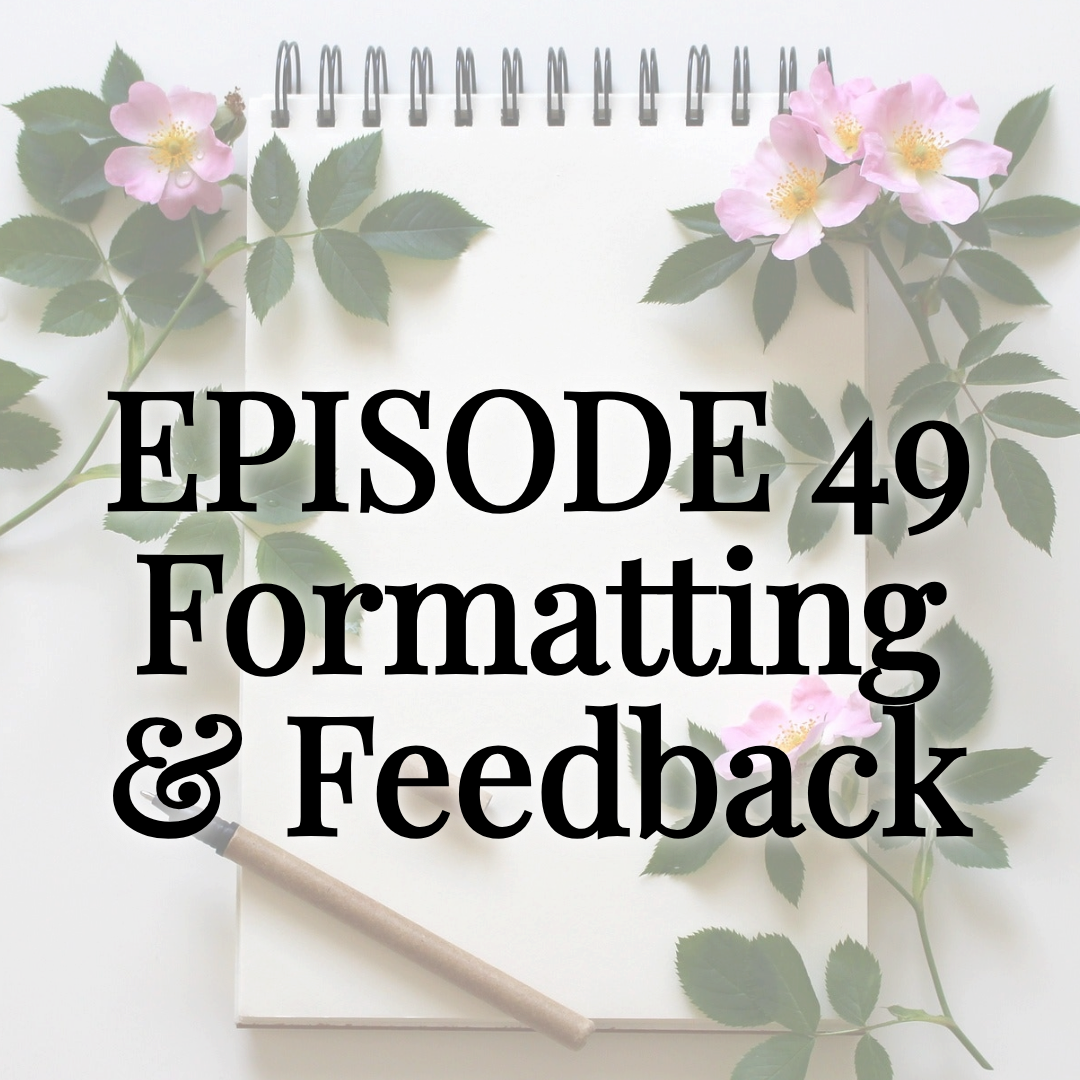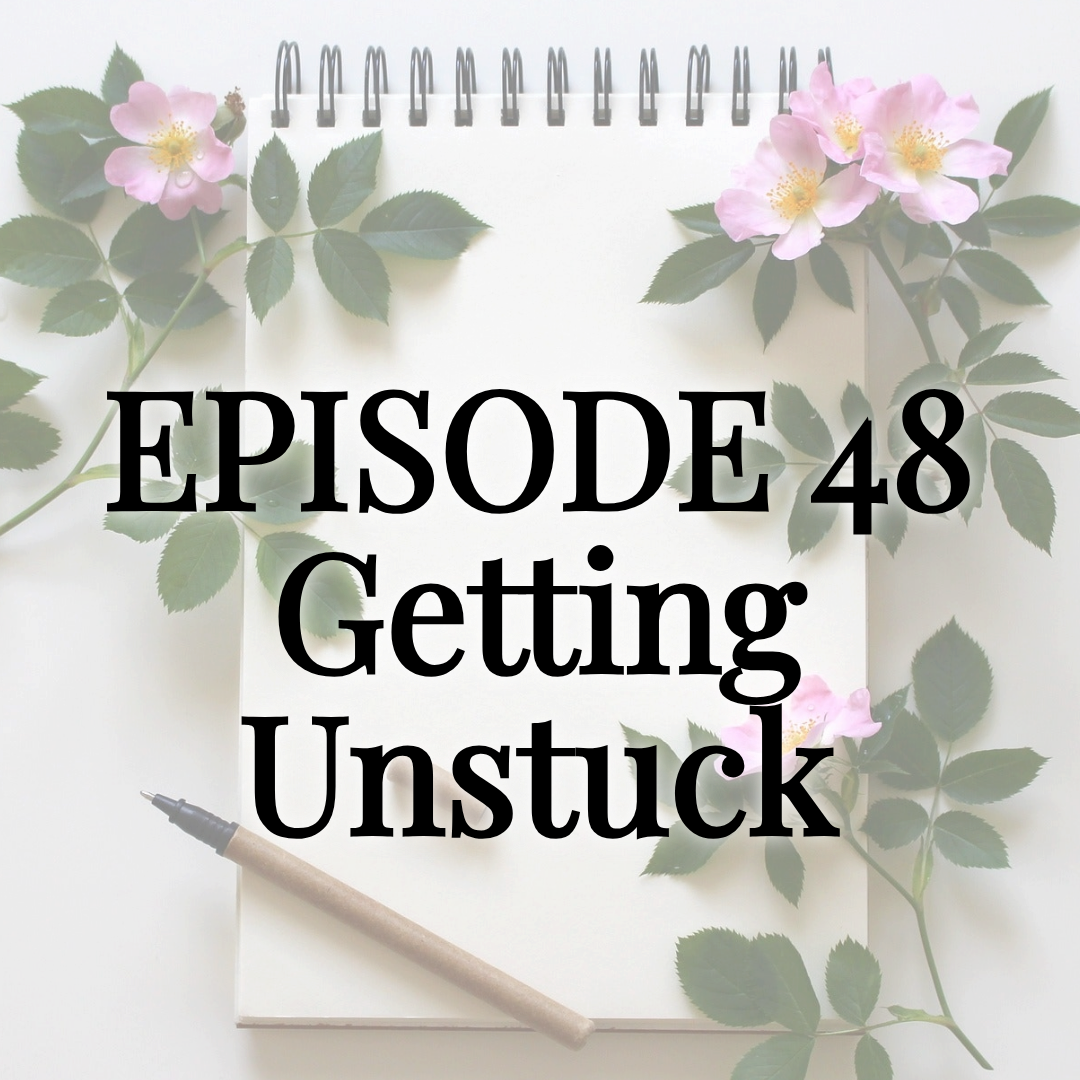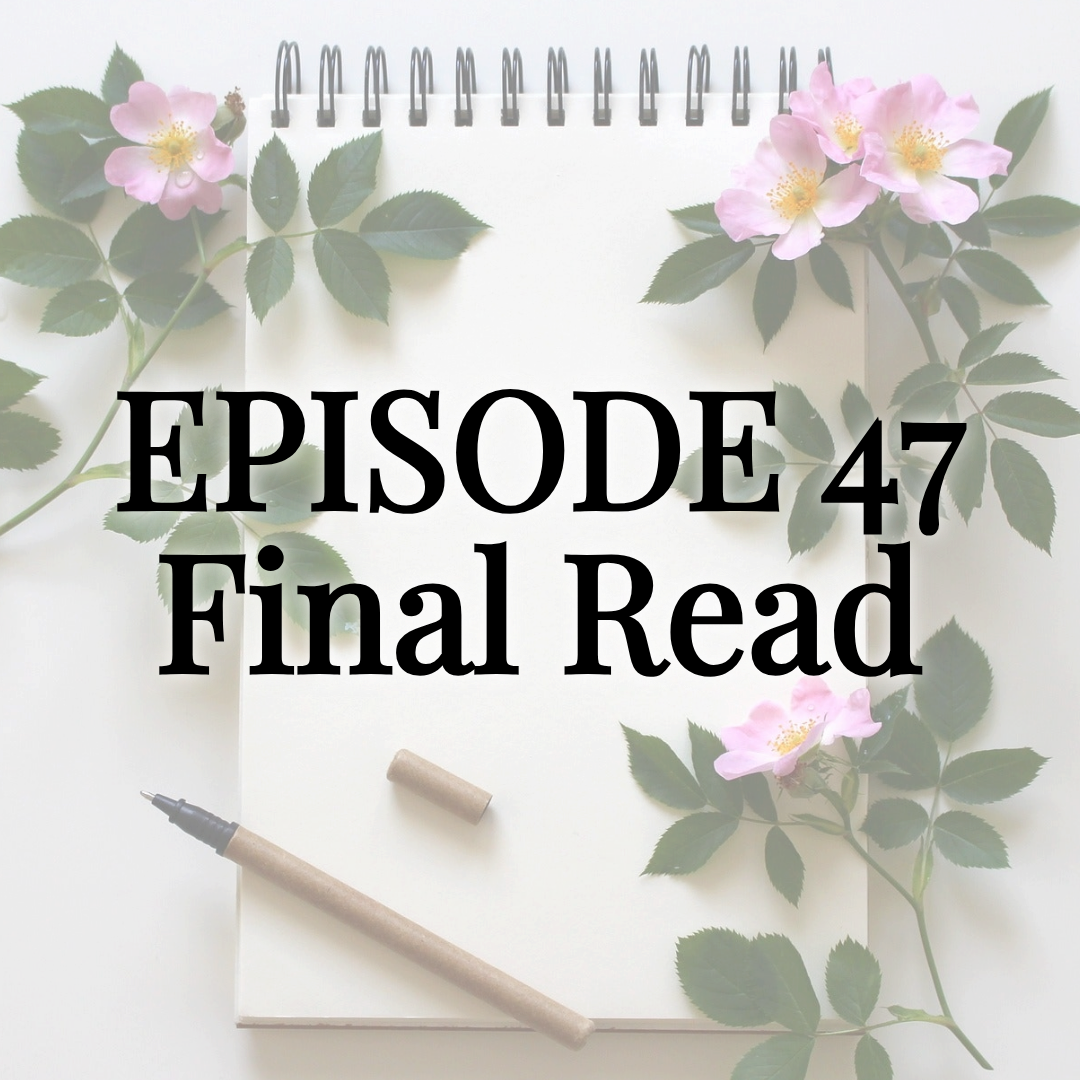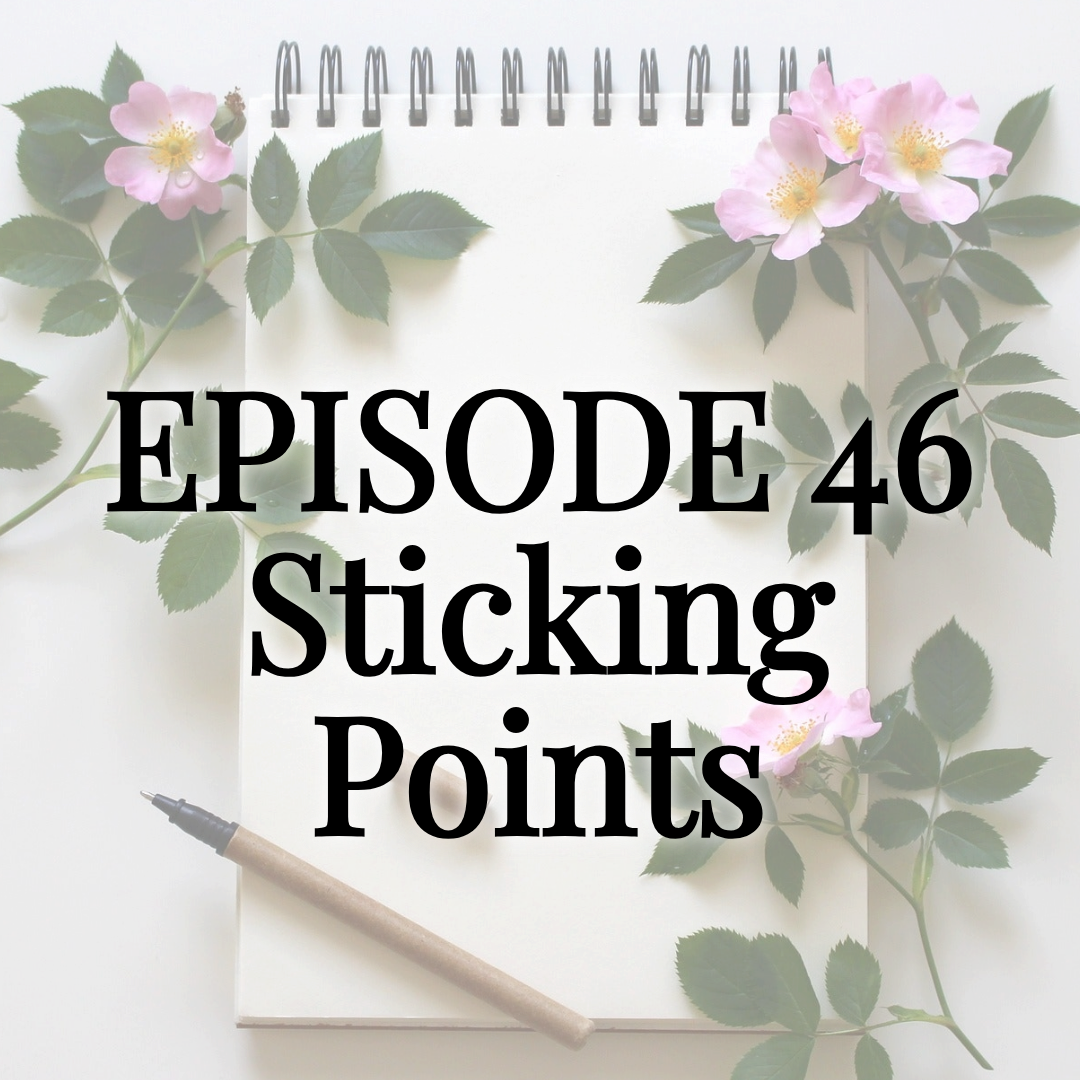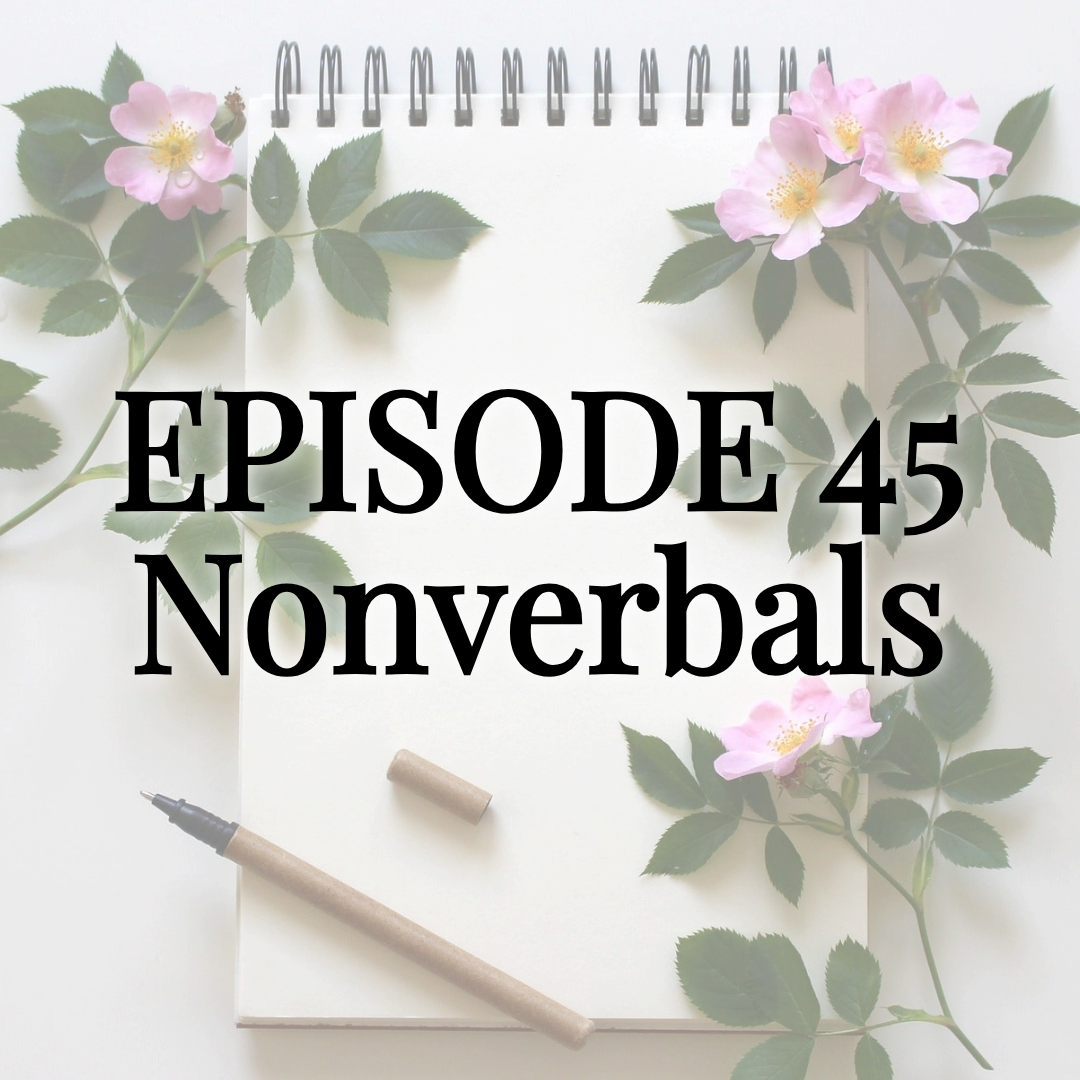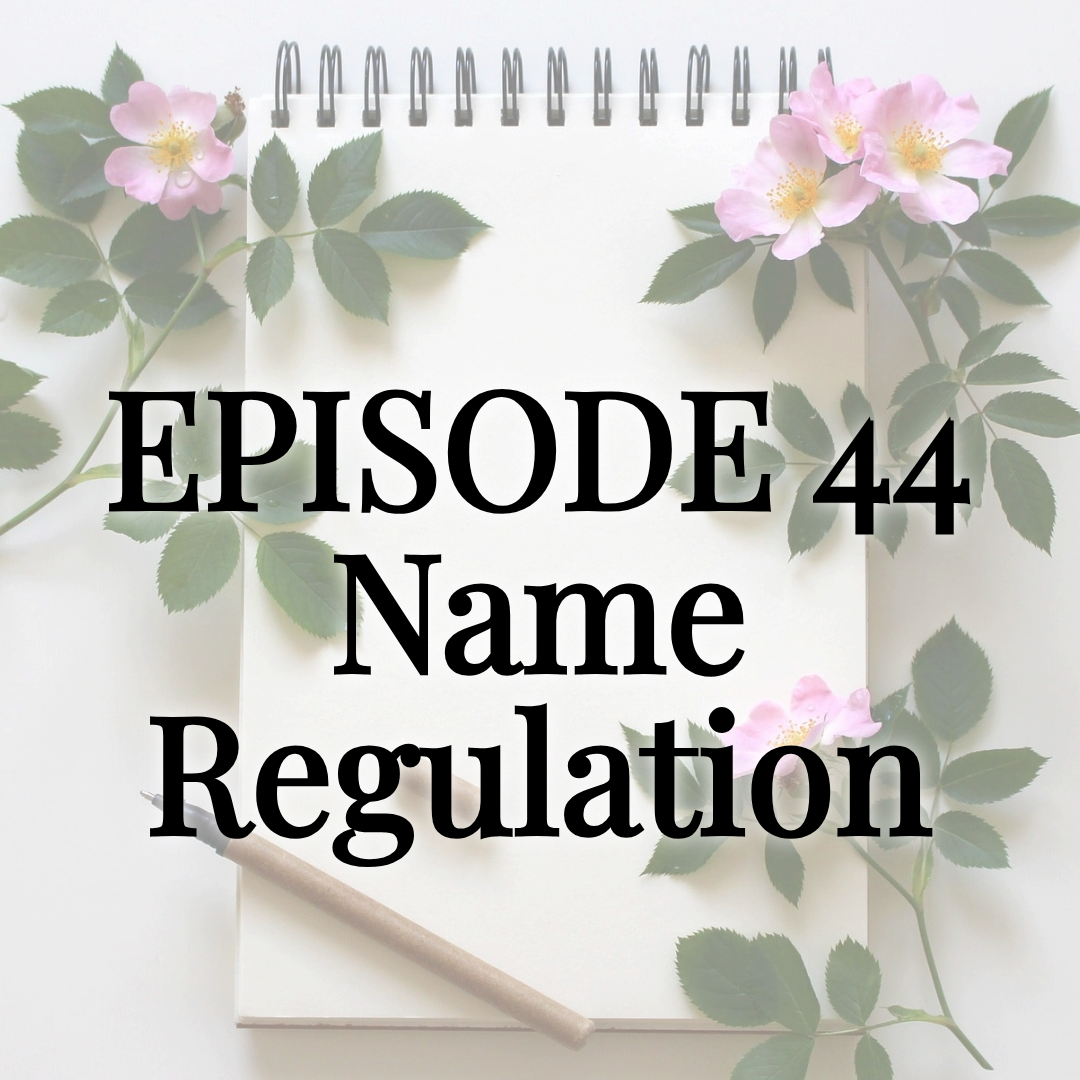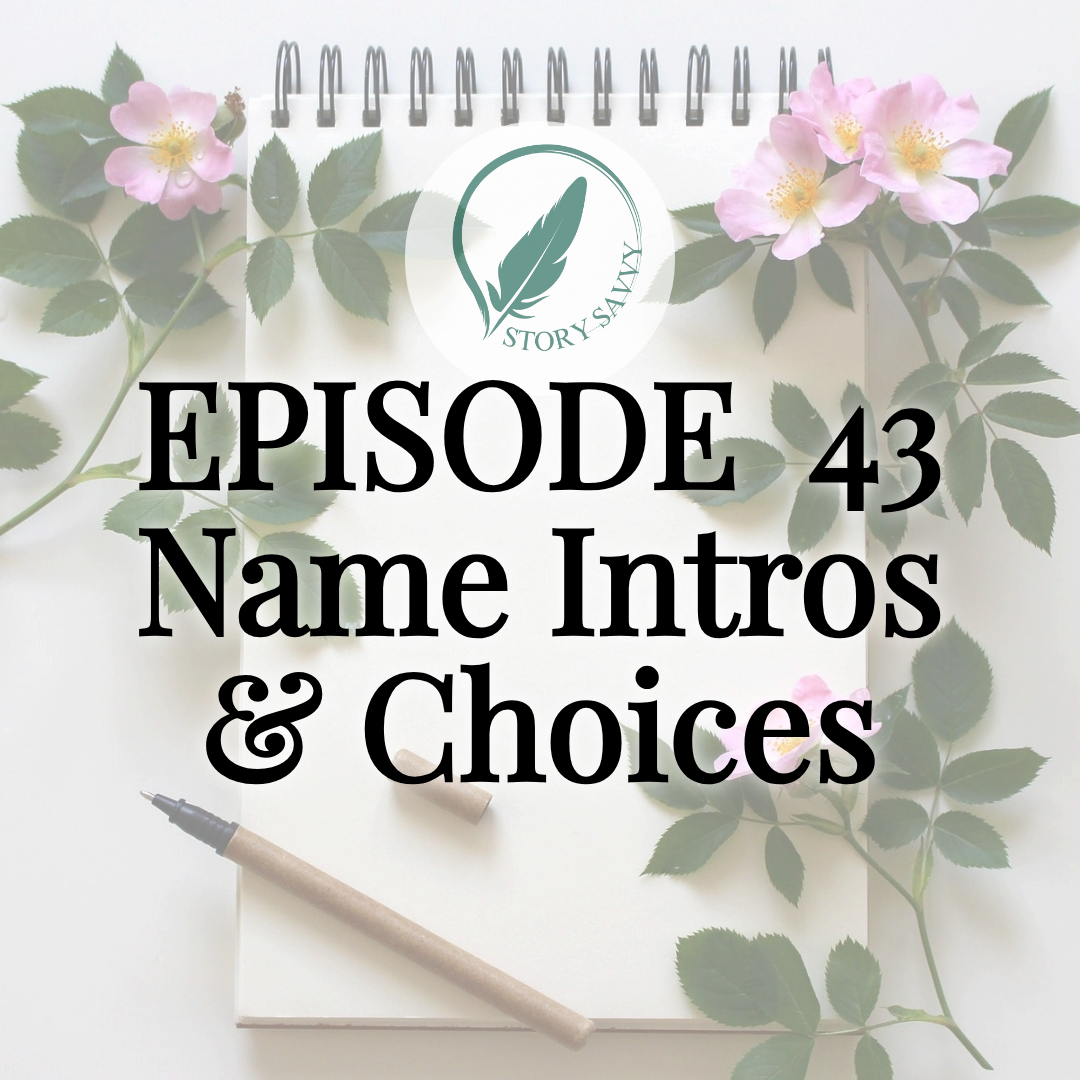Break Week: AI In Writing & Editing: Story Savvy Self-Editing Episode 40
AI In Writing & Editing: After-episode thoughts, overview, and transcript…

As promised, here are some external articles on the topic of AI, a discussed, within three subcategories.
First, The Creative Penn Podcast by Joanna Penn is a great, positive source on AI for writers and other author-industry professionals.
Second, here are three articles on the environmental impact of generative AI from MIT, from USA Today, and from The BBC if you're looking for an overseas perspective.
Third, here are five articles on more phycological or developmental impacts of generative AI from Forbes (try using an Incognito window to bypass the paywall, if needed), The Wall Street Journal, IFL Science, Substack, and Futurism.
I highly encourage anyone interested in this topic to do more research on their own, as this all is very much just the tip of the iceberg.
Lastly, the other episodes in this series referenced in this one are:
Episode 19: Plot Holes & Character Inconsistencies
Episode 38: Dialing Up Uniqueness
Happy editing!
Episode 40 Overview:
Break Week: AI In Writing & Editing
BREAK WEEK TOPIC - Catch up on other topics while having a little something to think about!
This week’s podcast for fantasy authors explores AI and the writing process and what it means for creative integrity. Rebecca and Agnes dive into AI and storytelling ethics, examining ethical AI use for authors and the environmental cost of AI tools. Together, they unpack the cognitive impact of AI use, the importance of protecting author rights, and how writers can continue editing with integrity in an increasingly digital world.
In this episode of the Story Savvy Series, developmental editor Rebecca Hartwell and aspiring fantasy author Agnes Wolfe explore the complex and often controversial role of AI in modern writing. Rebecca breaks down the differences between generative and assistive AI, examines the environmental and ethical implications of these technologies, and considers their long-term effects on both the creative process and the cultural value of storytelling.
In this episode:
• Understanding different types of AI (Generative vs. Assistive)
• Dangers of using generative AI as an assistive tool
• Ethical considerations for writers around using AI
• The value of human creativity versus AI-generated work
• The importance of transparency when incorporating AI
Chapters:
[00:00] Intro
[03:17] Generative versus Assistive AI
[05:26] When and How AI Fits into Editing
[7:51] Why You Should Avoid Using Generative AI as an Assistive Tool
[12:18] Environmental Impact of AI
[14:58] Ethical Considerations for Writers
[22:08] The Value of Human Creativity
[25:42] The “Use It or Lose It” Philosophy
[30:08] Long-Term Effects on Creativity and Culture
[33:16] Recognizing AI Writing & Responsible Use
[34:12] Optimistic Considerations For Using AI
[41:20] A Final Caution for Authors
Recommended Resources:
•Agnes Wolfe: www.agneswolfeauthor.com
See you next week for episode 41: Reducing Redundancy!
Episode 40 Transcript:
Break Week: AI In Writing & Editing
Rebecca Hartwell: Hello and welcome to the Hart Bound Editing Podcast. This is episode 40 of the weekly Story Savvy series, where we tackle the 52 biggest self-editing topics and tips to help you make your good story great as an aspiring author asks me, a developmental editor, all of the questions that you have wanted to. We have covered so much in this series so far, including last week's episode on polishing your narrative style choices. Today, we are going to take a bit of a break week in this series and talk about the use of AI as authors. By the end of this episode, you will all hopefully feel better informed on this topic from a writer's perspective specifically, and have a better grasp on whether you do or don't want to use any of these tools in your writing processes going forward. Joining me to ask all of the questions is my friend and co-host, Agnes Wolfe. Hello.
Agnes Wolfe: Hi, I'm an aspiring fantasy author who hopes to release her first middle grade fantasy later next year, and also the host and founder of Authors Alcove. I'm here today to tackle this often very polarizing topic. I know technically, I am the one who brought this up as a possible topic, and part of it is because I just think it's so incredibly important to talk about, and the nuances of it, and what parts of AI might be more beneficial, and what ones are more hurtful, and what ones we should avoid, and what ones that could possibly be helpful if we choose to use them. Just to start the topic off, I still want to hear why you also felt that this was an important topic to discuss, especially during a self-editing course.
Rebecca: Sure. I feel it is important largely because it is a very present topic in the author space. It has been for a while, and it probably will continue to be. I wanted to talk about this topic in this series and at this stage in the series for two reasons, primarily. First, it is good to take breaks in any long process, and this felt like the right place to take one, as folks catch up on the scene-level and line-level topics, which made up the middle of this course. So, if you're still working on catching up, this week is for you. The second reason that I wanted to talk about this, or at least accepted your invitation to talk about this, was that from this point on in this self-editing process, I personally feel like AI becomes much more acceptable and potentially actually helpful to use as we get into the copy editing, formatting, and other true polishing-level self-editing steps.
Agnes: And I think, before we really get into the opinions and those sort of things, I think it's important to clarify what types of AI there are out there, and what we mean specifically, like generative versus other kinds. So, do you mind just talking about that particular aspect in relationship to self-editing, which we are talking about today?
Rebecca: Yeah, so today we are specifically talking about two different kinds of AI. There's assistive AI, which has functionally been around for about a decade but took leaps and bounds forward with the recent advent of the AI zeitgeist. Assistive AI includes narrow-purpose spell-checking software, like Grammarly or ProWritingAid. It includes text-to-speech and speech-to-text functions, like Speechify or Dragon Dictation. And it includes formatting software, like Atticus or Vellum formatting. And then, on the other side of that, we are also talking about generative AI, which is what really exploded onto the digital scene over the last 3 years. Generative AI includes things like ChatGPT, or Midjourney, or anything else that works with prompts, creates content of any kind, rather than suggesting or implementing adjustments to human-made content, which generates or iterates content based on existing media collections, or collects or mashes together existing content into “new” forms, that sort of thing. In this episode, I will always clarify which of the two kinds I'm talking about for each point, if I remember. But if I fail to do so, if I fail to clarify that, it's probably more accurate to assume that I am talking about generative AI specifically, as that's simply what most of the relevant global discourse on the topic has been around.
Agnes: So, I think one of the most important things to discuss is when it is okay to use AI during the editing process, and are there certain programs you feel are safer for authors to use? And also, what is maybe not safe, and you should probably avoid?
Rebecca: I think that it's totally fine to use assistive AI, specifically in self-editing, especially from this point on as you get into more and more granular sort of lenses that you're looking through at your manuscript. The assistive AI programs, softwares, whatever, aren't feeding your writing into large language learning models, which essentially plagiarizes your writing. The assistive programs don't fall into many of the ethical or environmental issues that generative AI programs do as well, and really are assistive. Helping you to do the work yourself rather than doing the work for you. Assistive AI programs also won't flag your work as being AI to the same degree that running them through generative AI programs, even if you're trying to use them for assistive purposes, will. And then it's also worth noting here that all of the AI checkers out there, where you can upload work and it'll tell you whether or not it was AI-generated, they're pretty far from reliable, unfortunately, and will flag pretty much everything. So, the two assistive AI programs that I personally use myself the most and generally recommend to anyone who asks are ProWritingAid for spelling, grammar, punctuation, plagiarism checks, and style checks for your writing. And then I also recommend Speechify. which is a text-to-speech software I find incredibly useful in getting my brain to consume a story in a new way, which allows me to catch a whole new set of issues than I can when I'm reading with my eyes yet again.
Agnes: So, I didn't know how to prep you for this question, so you're going to have to use your brain on this one. One of the things that I was thinking about is that I know when I first started—because I have used ChatGPT, but I tried using it in an assistive way—I learned that it doesn't really work very well as an assistive program. Do you mind just kind of talking about why you should avoid using? And you did kind of mention it, so I'm like, okay, you have opinions, so this is a good one! Why would we want to avoid using generative programs for assistive? Like, I can give some examples later if you want, but I have a feeling that you have your own thoughts on that.
Rebecca: Sure. So, the difference is what it is designed to do. And assistive AI is usually designed with a specific purpose. For example, ProWritingAid. It has different layers to it, but all of them have a very narrow, very specific purpose, and that is to help, that is to do whatever job it has been assigned or claims to do. Generative AI’s purpose is to generate. And so, that can be generating ideas, that can be generating feedback, that can be generating content. The problem is they aren't very good at sticking to the truth in whatever context you're looking at. They also tend to over-engineer things, because they are reaching for intelligence. That's why it's called artificial intelligence. They're trying to essentially interact with users as a human brain. And when you're trying to use generative programs for assistive purposes, first of all, like I mentioned, you're putting your work into these learning programs which are plagiarizing it. So, that should be enough on its own for you to not want to put any of your work into a generative AI, even if you're using it for assistive purposes. There are also much higher ethical and environmental costs to generative over assistive. In fact, assistive, it's not really even worth talking about, that’s not what that AI does. But generative, absolutely, that is the case. So, there's a big difference there, and if you are coming to a decision for yourself that you do want to use assistive AI, but for whatever reasons resonate with you, you want to avoid generative AI, then that means you need to find purpose-made assistive AI programs, rather than trying to use generative AI programs like ChatGPT, Grok, Midjourney, whatever, for assistive purposes. Does that answer your question?
Agnes: It does. One of the things that I know that happens… So, when I first used ChatGPT, I was like, “Oh, this works for emails.” And so I would literally write my email and say, “Can you format it so it does the bullet things and all of that?” And I ended up running into too many problems of it wanting to use its own voice, so it would change some of the wording. And that is one of the things that I realized, because I was trying to use it assistively, but it's a generative program. And so I think that's important to talk about, too, is you need to be cautious trying to use a generative program as assistive. Like, “Oh, can you please proofread this for me?” It's going to change it for you. And also, like you said about the plagiarism thing.
Rebecca: And you don't know if it's going to be proofreading by, let's say, the Chicago Manual of Style or what it considers the standard grammatical usage of Reddit. Like, you don't know where it's drawing its sources, because it won't tell you where it's drawing its sources, it might not even know. But then, for your formatting example, that's a great example to bring up, because there are purpose-made, narrow-focus, assistive AI programs for formatting that don't have all of these other issues. Their job is to format, and because that's their only job, they're really good at it.
Agnes: You know, that is one of the things that I was really surprised about. Because I started to use it as email, and I was like, “Oh, this is going to be so great!” And then I started to realize it's changing what I'm saying. And even when I said only proofread, I thought, you know, it's just emails, it's not a big deal. But it ended up actually feeling like it was kind of a big deal as I started to use it, and so even for emails, I have started to stray away from even that. But one of the things that I did not realize about AI when I first started using it was that there are actual costs to the environment. To me, I'm just like, it's just a computer. Do you mind talking a little bit about that?
Rebecca: Essentially, yeah, it's really bad. There is a very high cost, specifically on the water consumption and global warming front. Generative AI is a disproportionately large factor in freshwater scarcity concerns over the next decade to half century. And we are seeing electricity costs going up across the board due to already subsidized demands for these data processing centers associated with generative AI. I think I saw a headline just yesterday that in cities that are near these data processing plants, people's electric bills have gone up 200-plus percent in the time that this has been a factor. I don't really want to talk about this too much in depth or detail here. I frankly find it super difficult to engage with as someone who deals with a lot of depression and anxiety around environmental issues. But I will definitely link a handful of articles specifically on the environmental impact in the show notes for this episode on my blog.
Agnes: And that was actually something that I was completely unaware of when I first used generative AI. I had even done some of the photos and stuff like that back then. And I still have them in my thing, because I'm not going to delete them since I have them, but I always have a little thing that says “AI-generated.” But I do even try to avoid making little graphics, even on Canva. That was where I did a lot of the graphics, was Canva, because Canva does have a generative portion in it. And I had no idea that had an impact on the environment, because to me, it was just like, “Oh, it's just typing on the computer.” Totally oblivious.
Rebecca: Yeah, there's a lot of distance and separation there between the individual usage and the impact, which can make it harder to fully grasp.
Agnes: And that's why I wanted to make sure that it was brought up during this, and I'm sorry that it is a kind of a painful topic. Because I don't think that I'm the only one that is totally oblivious, and I have a feeling there's still a lot of people who have absolutely no clue that every time that they use it, that it's actually having an environmental impact. So, I know we both agree on a lot of the aspects of the use of AI, especially when it comes to the ethics of generative AI, although you sit closer to anti-AI side than I do, where I use it for several aspects, specifically my business side of things. What are some ethical things we should consider when we're using it more freely that I might not have thought of before.
Rebecca: I want to start off with, yes, I am fairly anti-AI. I try to not take any hard stances, especially when I'm having a productive conversation about a topic, so I do want to say that if someone wants to explore some of the more positive takes or pro-AI takes, particularly as an author, I highly recommend finding the episodes of The Creative Pen Podcast which cover the topic of AI. Joanna Penn, who does that podcast, is great and much more optimistic about the whole topic than I am, so I will link to at least one of her episodes on the topic in the show notes as well. But yeah, I tend to lean cautious of AI, and here's just a short list of bullet points of why that has developed to be my stance. The environmental concerns that we just touched on are definitely number one. Number two would be, if you don't use a skill or a muscle, be that physical or mental muscles, you will lose it. Almost everyone on the planet has learned a skill in school that they couldn't even begin to use again now, and the classic example of that would be algebra or calculus. We all experience that. So, why do we all lose mental skills like that? It's because we stop using it. So, if you want to keep, let alone improve, your ability to come up with story ideas or structure them into usable plots, draft them in immersive and interesting ways, and edit them into life-changing or market-dominating published books, you need to keep fully using those abilities yourself, or you will lose them. Third on my list is how much harder it is to get noticed or make a living as an author in a market flooded by AI dreck. If you want your book to get noticed, if you want to have a presence, you need to be pushing to remove the AI garbage from muddying the signal. Fourth on my list is, even if you choose to use AI and it's not done from a place of laziness or a lack of care or quality in your specific instance, that is how it's going to be perceived more and more as time goes along, which can have disastrous long-term effects and impacts on a creative person's career. Fifth on my list is, the quality of AI-generated writing is very poor and predictable compared to human-generated, and needs a lot more time and effort, and probably expertise to make it decent enough for publication—assuming, of course, that you have standards for quality for what you want to put out in the world, which most “AI writers,” especially the ones preaching that lifestyle, tend not to. Sixth on my list is, it is a disproportionate contributing factor to the enshitification of all media and platforms. If you're not familiar with the term enshitification, look it up, try not to get depressed. Seventh on my list is, research shows us very, very clearly that generative AI, and particularly the heavy use of it, literally makes us significantly dumber and reduces both cognitive and social functioning in individuals. Eight on my list is, it erodes our connection with other people and with ourselves and our own creativity. Ninth on my list is, you cannot copyright AI-generated material, be that written passages or your cover art, and this can create issues for writers, the least of which is the free-for-all pirating of your work. If you write a book with generative AI and publish it and a thousand pirate sites steal your book, you can't do anything about it. Ten on my list is, speaking on that same topic, all AI-generated content is plagiarized. All Gen AI platforms were trained on massive amounts of copyrighted, human-generated material with zero permission from the writers or compensation for the creators of these pieces. And this is a huge moral and ethical violation that should matter to people. As an author, you really need other authors as your allies in your career, and anyone whose work was stolen and fed into these learning models, they don’t want anything to do with apologists for that, and quite rightfully so. You want friends in your professional community, not enemies, and that requires siding with other authors and other creatives against the violation of their rights and misuse of their creative property. And then eleventh and last on my list here—well, second to last—is, any good author should want to present something of value to their readers, and AI-generated material is inherently valueless at every level. In fact, this is a stance which has even been held up and established in courts over the last couple of years. And then 12, actually last on my list—I'm sorry it was so long—is that what AI makes for you, it will also make for hundreds, if not thousands, of other people. Why would you want to bother putting an AI-generated book out there knowing that, thanks to the very nature of generative AI, there is zero chance that it only produced that for you and you alone, so it's not going to be unique or original?
Agnes: I know my earliest stance, even when we first started this podcast, is very different than my stance now because when it first came out, I was like, “Oh, this is so nice,” and, “Okay, I would never use it on my book.” But I was like, “Oh, but I can use it for this, this, and this,” and I am slowly using it for less and less things because of a lot of the things that I have learned. And some of it I've learned from you. But I think one of the most meaningful considerations in my life is, we are human, and we should consider honoring people and their creativity. I feel like AI disrupts this. What are your thoughts on this particular topic?
Rebecca: The value of stories is to connect the writer, a human, to the humans who consume that story. If a computer is coming up with their ideas, or deciding how to present them, anything like that, how can the writer expect those stories to connect in any meaningful way? I think you have a great point of just, connection matters, and we need to foster that. Being creative is one of the defining traits of being human versus, let's say, a beetle. More specifically, creating for the sake of it is really inherent and important. Throughout recorded history, art in all forms, from building pyramids to skaldic poetry to Renaissance painting, to community and performance dance, and basically just engaging in creative pursuits of any kind for the sake of it, hasn't only been important to human existence and how we understand our place in the world, but I would say is vital to it in every life, in every age. So, why then would you sell out to computers taking over that creativity? Making something that comes from a place of zero emotion, or experience, or soul, or expression, because it's literally a computer and it's just churning stuff out for other computers to then mash together and repeat the process. I think that generative AI's disruption between people is very real, like you mentioned. But I think it's also incredibly important to remember how important purely human creativity is in connecting with ourselves through that process. If you aren't reaching into the depths of your soul, if you aren't grappling with doubts, fears, traumas, dreams, hopes, and joys in the creation of a story or any other piece of art, then you are losing out on so much more than I think most people realize. And if you aren't truly engaging in that full creative process, then what's the point of having something created at the end stage? The only answers that I've personally seen or been able to come up with are either money or ego. And I don't know about you, but those sound incredibly depressing when the alternative of life purpose realization and all that kind of stuff is another option on the table.
Agnes: When I use AI, one of the things that I often think about is something that you have said countless times, and the first time you said it really impacted me a lot, and it's something that I often think about. So I still do use generative AI, for ideas for my math, as a math teacher, coming up with the problems. I try to find most of my stuff online through Teachers Pay Teachers and those sort of things, but I have, on occasion, been like, “Okay, what can I do for this?” and it's helped me, because I am one of those that actually does algebra, geometry, all of those. I have not lost that. I have used it, and I have not lost it. But what you have said is, “If we don't use it, we will lose it.” And that struck me a lot, because when you said that, I had started using generative AI, and I realized, “You know what? If I continue to use it in the way that I am using it”—and this was before I even learned about the environmental impact—“I am going to not be able to do this as well. I will not be able to articulate as well. I will not be able to make myself—” What I was using it a lot was to help me be more clear. And I'm like, “I won't be able to do that if I continue to use it.” So I wanted you to take a moment and just kind of talk about that particular aspect of it.
Rebecca: That topic right there is a big part of why I really try to hammer home that difference between generative AI and assistive AI. So, when you're facing this topic for yourself, whoever you are as an individual, assess if a particular thing is a skill that you want to have, or one that you are okay offboarding, like you were just talking about. For example, for myself, being a perfect or even reliably good speller didn't make the cut. And yeah, the way that my brain is wired with various neuro-spiciness definitely is a contributing factor, but I also just decided that those specific mental muscles around correctly spelling this complicated language that I speak wasn't worth it when I would rather use that memory space and processing power for the mental skills that I care a lot more about. So, I am heavily reliant on spellcheck, and I only become a better speller very slowly and painfully over time. But I care a lot about my critical reasoning skills, my ability to do real, deep research, my ability to explore and integrate new concepts or philosophies or practical tools, and I care a lot about my creativity, and, as a niche within that, my grasp of macro story elements and function beyond and above all else. So, my insistence on keeping those specific mental skills as strong as they can be, without offloading or enshitification or whatever, can be pried from my cold, dead hands. But spelling? I don't care, I will offload that. So, environmental or ethical concerns aside, just ask yourself, on this use-it-or-lose-it topic, ask yourself, do you want to be someone who can do whatever task it is you are considering using AI for? If not, great! You have a tool right there in front of you, a very powerful one, to do it for you. But if you DO want to be someone who identifies as a storyteller, or an editor, or a teacher of any topic, then you need to actually do that mental work, or you will just become someone who uses AI, and it's the AI who actually teaches, or tells stories, or edits, or whatever the topic happens to be. If you want to say that you are capable of something, that's the thing that you need to keep actually doing and improving the mental muscles for yourself.
Agnes: I feel like we should also talk about the long-term effects that using AI has, both on us as an individual and the atrophy of our minds, but even the broader as a culture and creativity of our society. What are some of your thoughts on that?
Rebecca: I like smart people. I like thinking that humanity in general has two brain cells to rub together, and more and more studies are coming out about how people of all ages are literally losing the ability to think with ongoing use of, or reliance on, generative AI, and that's kind of scary to me. Research is showing us that the use of AI is highly addictive and severely damages critical reasoning, decision making, creativity, and a lot more. I will make sure to link some articles on this topic in my blog for this episode. Essentially, even with the environmental and personal creative considerations aside, it's documentably better for humanity in whole if we collectively shun or otherwise avoid the use of generative AI. I don't want to live in a world that doesn't have creatives. I want to live in a world where AI is doing the shitty work, the menial labor, the manufacturing, whatever, so that people can be creative. And I think that, culturally, our future is a lot more beautiful and creative and connected and all of the good things the more we can push the narrative that AI needs to stay out of creativity and decision-making. Beyond that, long-term, we will start seeing more and more means for filtering out AI-generated content as our markets and platforms and societies get more and more flooded with it. If anyone out there thought that the fiction market was already flooded with so many books, let's say, post about 2009, with the advent of indie publishing, then I have bad news for you. It's only going to get worse as things keep going in the direction of AI. It's just going to compound that saturation. Which I don't say to discourage anyone from writing, quite the opposite. You should write your real, human, meaningful stories, and everyone who wants a chance at an author career should also loudly rail against AI-generated writing, because only in making AI-generated writing a pariah to the point of shame for the scammers and the lazy people and whoever pumping out an AI-generated book a week—only then can humans stand a chance of our industry and livelihoods not buckling under.
Agnes: I actually have found that you can kind of tell when AI has written something, because it has a certain voice, just like we as humans have a certain voice, and I have been reading a lot of, like, “Oh, this article is interesting.” I start to read it, and then it says something, and I'm like, “This is not human.” And you can tell. And that's one thing that I think that people need to realize, is that you can't really hide the fact that you are using AI. You might get away with it by certain people, but people can tell if you are using AI.
Rebecca: One of my guilty pleasures is the Reddit stories read out over Minecraft [IP1] videos, and, yeah, I can tell when one is AI-generated. There are certain word choices, there are certain cadences, it's actually pretty easy to tell.
Agnes: Yeah, and I think it's like, the more familiar you become with it, the more you run across it, then you can spot it like that. I hate to tell you, but somebody is going to tell that you use AI, that it is not your writing. But I feel like a lot of this episode is pretty anti-AI, which is fine. I think that those particular aspects need to be talked about, but if a writer still decides to go ahead with using generative AI, what would you say to them that isn't trying to talk them out of it?
Rebecca: Totally. So, being magnanimous, coming from a positive place here, people will absolutely make that choice because they are intrigued by the potential of the technology, or because of limitations around their time or physical abilities, because they want to publish more books per year and they want to have that career, or to get past writer's block, or a whole host of other reasons that are totally understandable. Here are some considerations to bear in mind if you go ahead with that. First, I suggest that you be honest about it at every turn. Like you were just talking about, people can tell, so if you mention ahead of time, “Hey, this was AI-generated,” you might get curiosity of people going, “Well, I want to see how that turned out.” But essentially, trying to dupe those who don't want to consume AI-generated material is going to go more poorly for you—when they find out, not if they find out—than it will if you're just upfront about it. Sometimes if you fail to correctly label something as AI-generated, it might get you kicked out of some spaces, but at least if you are up front, you may learn which spaces those are as a warning without actually getting banned or ostracized. I've seen this happen in a bunch of different groups, where, if the person had simply done a little disclaimer about their use of generative AI in creating something, they would still, to this day, have access to those networks and those communities. My second piece of advice is you will need to heavily revisit the topic of dialling up originality and uniqueness, like from episode 38 of this series. Generative AI's literal job is to collect from what is already written and rearrange it and re-“imagine” it for you. So, you need to put in more effort into making it genuinely original than perhaps you would otherwise if you had written it from scratch. My third piece of advice is that you make sure you do really heavy and meaningful checks for plagiarism before attempting to publish it. Generative AI is plagiarism software, for better or worse, so the impetus of avoiding literally paying high costs in court for plagiarism is on you, not the software. Fourth, bear in mind that the more generative AI writing floods digital spaces, the more it's feeding into generative AI writing. It's like making a copy of a copy of a copy on a printer to the point where it's just kind of this gray blob. Or like the sci-fi trope where it only takes a few generations of cloning clones for them to become these deformed monsters. So, if you are hoping to get the same results from generative AI writing which you or someone else was getting right at the cusp of this technology, that’s unrealistic now, 3 years in, and it's going to keep getting more so. If you want to do it, if you are sure you want to write something with generative AI, do it as soon as possible and understand that as of about 9 months ago, from what I've seen, generative AI stories will need much more intense editing overall to publish something of quality than it would have two years ago, or if it was human-written. Fifth, do your research on what your copyright options are or aren't in your specific situation, depending on what you used for your process, and understand how that impacts your publishing or the life of the book. Some platforms do require original work, which generative AI does not count as. Or they might have requirements worded as “human-made,” or “copyrighted,” or “copyrightable.” So, just make sure that you thoroughly read through all of the terms and conditions and definitions and the like at each stage for whatever publishing—or sharing, or anything like that—steps that you want to take for your career. Sixth and lastly, make sure that you do several extra rounds of self-editing an AI-generated book, specifically for plot holes and inconsistencies, like we talked about in episode 19 of this series. Generative AI stories have a high risk factor for having far more plot holes and inconsistencies in the story than human-generated stories do. And you need to at least get it up to that sort of human-average baseline before looping in feedback readers or post-publication readers.
Agnes: I know for myself, even 12 months ago when we first started doing this particular thing, I was even using it for some ideas to advertise our episodes and stuff. And it's funny, the more I learned, the less I have been wanting to use it, because I have learned a lot since I started using it. I used it to help me write emails, like, “Okay, this is what I want to say, blah, blah, blah.” And then it would generate, and I was like, “Oh, this is so nice!” And I appreciated it, and I loved it at first. But then, as I've gotten to know more and more things… And so I think one of the things that I would like to impart on people is to start doing your research on AI, because my stance even 6 months ago is different than my stance now. And it's just continuously changing, and so I encourage you, if you haven't really thought about some of these things, to really start to research it. And I have to admit, I have become a little bit more and more anti as I have gotten to know more things. I know we had talked about it before, where there was a little bit bigger gap earlier on, when we first started this series. But I'm coming to your side slowly, just so you know.
Rebecca: Cool!
Agnes: What'd you say?
Rebecca: I said cool, but yeah, that's how that process tends to go.
Agnes: So, that's what I would like to say, but I want to give you a chance. So I have one last question for you. I know what my takeaway hope would be for writers and AI, but if you could just say one thing to an author and why they should be leery, or maybe even avoid AI, what would it be?
Rebecca: I suggest being careful that you don't end your career by choosing the wrong side of this issue while it's still unfolding, which it is. We are already seeing authors who even just got false allegations of using generative AI [IP2] getting hardcore cancelled. I've seen lists floating around of authors with confirmed AI art covers or generated AI content in their story, and these lists are being circulated as permanent blacklists for ethical readers. So, I hope that our listeners are ethical readers, and I hope that none of our listeners or authors specifically trying to pander to unethical readers. That would be weird and uncomfortable. You should want ethical readers, so bear that in mind. I firmly believe that these lines around the ethics of, or perceived ethics of, generative AI use are going to become more and more invested and firmly drawn over the next couple of years. So, don't risk getting blacklisted by your readers, by other authors that could otherwise be allies in your career, or risk future legal issues at least with sales platforms, if nothing else. And avoid generative AI for the sake of your writing career over the rest of your whole life.
Agnes: Well, anyway, I just want to thank you so much for your insight. This was a very informative, important conversation, and I'm glad we discussed it.
Rebecca: Me too. Next week, we will be officially starting the final module of this series, micro-level polishing. The first of these more granular topics will be reducing redundancy, which will hopefully be very helpful for anyone working on bringing their word count down, or improving their momentum further than they already have. For now, I would love to thank everyone following along with this series. If you know any other authors who are nearing the end of their first draft, or struggling with revising or rewriting their novel, please send them in the direction of this series. The more authors that we can help understand and finish the process of self-editing, the better.
Agnes: For those who have followed this series, we only have a dozen, literally a dozen, episodes left to follow. Thank you!
Rebecca: Thank you so much for listening to the Hart Bound Editing Podcast. I look forward to bringing you more content to help you make your good story great so it can change lives and change your world. Follow along to hear more or visit my website, linked in the description, to learn how I can help you and your story to flourish.
See you next time!
